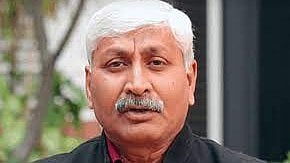
Apoorvanand
There was hardly any outrage when the intelligence officials visited Ashoka University to inquire about a paper authored by assistant professor Sabyasachi Das. The paper angered the ruling Bharatiya Janata Party as it indicated possible rigging of the 2019 elections for the benefit of the party. They wanted to know if the management was in the loop and whether other faculty members were also involved in writing the paper.
The fact that it did not cause uproar in the academic community nor did the media make it an issue proves that academic freedom is not an issue for Indian society. The news of teachers getting suspended, attacked physically and even jailed for their work has stopped bothering even the academic community. It hardly bothers people when seminars or other events like film screenings are cancelled or disallowed, speakers are denied permission by the authorities, and students are penalised. The implications of the civil services rules for the faculty being accepted by the universities have not been understood by the academic world and society at large.
DH Illustration
We are fast approaching the state of full-blown totalitarianism that turns campuses into propaganda arenas for the ideology of the state and mutes all free voices. There is nothing ironical in the fact that India has started mirroring its rival China in this matter. After a brief recovery from the mayhem of the cultural revolution, the campuses in the neighbouring country are now fully controlled by the Communist Party of China. Classes and teachers are monitored, syllabus and curriculum are aligned with the party ideology. Student activism is unthinkable in China and done at great risk. Similarly, one can look at Iran for a comparable situation on the campuses. The Islamic revolution did not feel complete without making the campus subservient to the ruling ideology. The most recent revolt against the dress rules for women in Iran energised the universities but it was swiftly controlled by the authorities. Students and teachers were jailed for supporting or participating in the movement.
The memories of the Soviet Union where even biology and psychology had to submit to the party ideology or the McCarthian terror tell us that the present-day Indian rulers are inheritors not only of the Nazi thought but would also do Stalin and McCarthy proud. Authoritarian regimes abhor free campuses but democracies cannot thrive or even survive if campuses are not independent of the regime.
The Global Public Policy Institute has given India a 'C' grade in its Academic Freedom Index – just a notch above E, where you find China and Iran. Academic freedom has been measured by asking questions regarding “freedom to research and teach, freedom of academic exchange and dissemination, institutional autonomy, campus integrity and freedom of academic and cultural expression”. The Indian record is poor on all counts.
It is not only social sciences and humanities that are being targeted. Now science institutes like the IITs and AIIMS being used for the ideological purpose of the ruling BJP. The regime knows that one or two arrests, ‘sporadic physical attacks’, and punishment to one or two teachers here and there send the right kind of signal to the larger academic community and make it start exercising self-censorship to keep itself safe and the regime happy.
It will lead to lasting damage to the nation. Historian Romila Thapar told this author in a conversation that after the destruction by the cultural revolution, reformist Chinese leadership had to call scholars from outside to tell the universities what knowledge creation meant. If the present phase continues, Indian universities will also go down the same path and lose the sense of the exercise of knowledge creation. The dream sold to the masses of being the Vishwa Guru seems to compensate for that.
(The writer teaches Hindi at Delhi University)